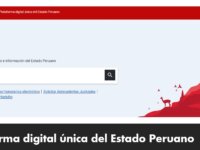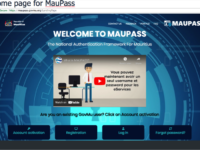Social Security is now proactively sending communication of the proposal to award the Family Allowance, as soon as the baby is registered at the maternity hospital. All the father or mother has to do is go to their Social Security Direct message area and confirm the proposal. With this confirmation, the Family Allowance is automatically awarded and no further action is required.
Innovation Tag: UX/UI Design
Case Study
High Impact Service Provider Case Study: Innovating the Individual Assistance Program For Survivors…
The Federal Emergency Management Agency (FEMA), a component of the United States’ Federal Government, has fully reimagined its DisasterAssistance.gov website to make applying for disaster assistance faster than ever. This change will reduce time burdens for survivors post-disaster, when they are in greatest need and the most overwhelmed. This effort has been built on decades of feedback from disaster survivors and is expected to reduce the registration time by more than 15%.
Zaragoza City Council has launched a new electronic citizen participation platform with the aim of involving its citizens in public policy decisions and in the design of its services. It provides an interactive space for residents to actively contribute, strengthening the collaboration between the administration and the community, thus fostering a more inclusive and transparent management.
The Autobús Legislativo: digital legislative files is a unique technological innovation in Mexico with the objective of making available to citizens all information related to a legislative bill and its drafting process in a single digital platform. In this way citizens are informed on the "route" and "itinerary" of legislation, from its conception until it is approved.
"Påkobla Hjelpemiddel" (PH) is a digital solution developed from a digitalization department in Kristiansund Municipality, Norway. This innovative system addresses challenges in inventory, distribution, and logistics, improving the efficiency of delivering assistive devices. PH will be completed as a system in the end of 2024, but is today used by four municipalities that are a part of the innovation.
Starting a family is a major milestone in life. It also requires public service support. In Iceland, parents have the legal right to take leave and receive benefits, which allows them the time to take care of and bond with their babies. Having a baby can be stressful, and time should not be wasted on paperwork or bureaucracy. The digital application for parental leave automises the process and makes the processes simpler, faster and more user friendly. 90% of parents in Iceland currently prefer…
People are demanding increased transparency and participation in government decision-making processes. Project Heart brought together people with lived experience, researchers, designers, and policy analysts to co-envision a way for engagement to be meaningful and bring about more caring and equitable futures for all. The findings are a rallying call for governments to change common practices and move towards co-designing policies/programs as a path to (re)building community relationships.
The Digital Agency spearheaded the Policy Data Dashboard Project with an agile approach to visualize policy progress and propogate a culture centered on data. The project aims to effectively integrate data into policymaking by first creating an intuitive dashboard interface. To disseminate this data-centered culture, the project members are developing a design system guideline to empower civil servants in other central ministries and local administrations to create dashboards independently.
The single digital platform of the Peruvian State offers guidance information for citizens about procedures and services. It centralizes the institutional pages of all entities, as well as all their regulatory information, publications, news and campaigns. It is focused on being an accessible platform that can be used by all people on all devices, considering principles of accessibility and inclusion.
MauPass has been developed for citizens and businesses to transact easily and securely with Government online. It is a single window of authentication service to provide a layered approach towards e-Authentication implementation for all government and other e-services. This initiative follows an urgent need for better identity and access management for a trusted ecosystem.




